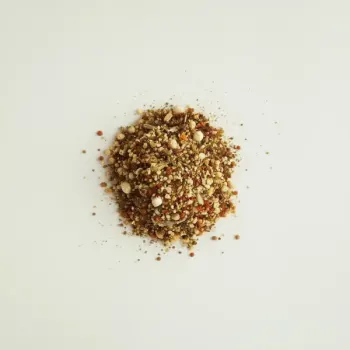


Organic
Organic versions of Italian Seasoning are available, which guarantee the herbs were grown without synthetic pesticides or fertilizers.
Fresh Blend
While less common, some specialty stores or markets may offer a fresh blend of Italian herbs that can be used to create a homemade Italian Seasoning.
Dried and Mixed
Italian Seasoning is typically found as a dried herb blend, combining classic Italian herbs such as oregano, basil, thyme, rosemary, and marjoram.




dried Italian Seasoning: McCormick
organic Italian Seasoning: Simply Organic

Baking: Incorporate Italian Seasoning into bread dough, pizza crusts, or sprinkle it on top of focaccia before baking. The dry heat of the oven will intensify the herb flavors, infusing the baked goods with a fragrant herbaceousness.
Simmering: Italian Seasoning can be simmered in sauces, stews, and soups. This slow cooking method allows the herbs to fully release their flavors into the dish. Add the seasoning during the initial stages of cooking to build a complex flavor base.
Marinating: Use Italian Seasoning as part of a marinade for meats or vegetables. The herbs will impart their flavors into the marinated items, especially if given time to sit. Combine with olive oil, vinegar, and other seasonings to create a balanced marinade.



